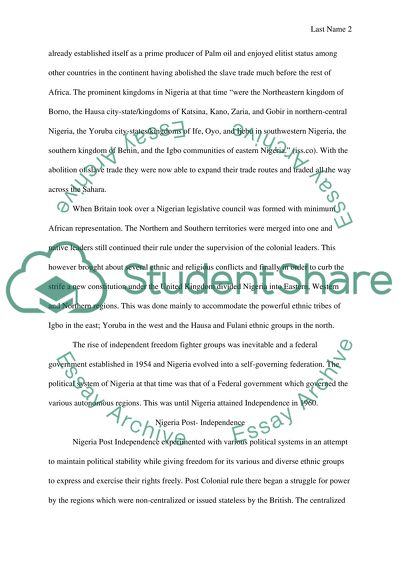Cite this document
(“Nigerian Politics as a Basis of the Case Study on African Politics Research Paper”, n.d.)
Retrieved from https://studentshare.org/history/1396312-nigerian-politics-as-a-basis-of-the-case-study-on-african-politics
Retrieved from https://studentshare.org/history/1396312-nigerian-politics-as-a-basis-of-the-case-study-on-african-politics
(Nigerian Politics As a Basis of the Case Study on African Politics Research Paper)
https://studentshare.org/history/1396312-nigerian-politics-as-a-basis-of-the-case-study-on-african-politics.
https://studentshare.org/history/1396312-nigerian-politics-as-a-basis-of-the-case-study-on-african-politics.
“Nigerian Politics As a Basis of the Case Study on African Politics Research Paper”, n.d. https://studentshare.org/history/1396312-nigerian-politics-as-a-basis-of-the-case-study-on-african-politics.


